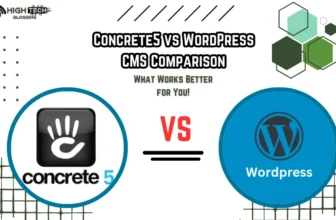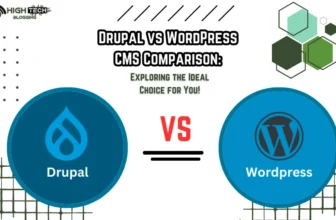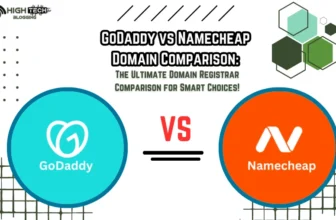In this article I compared SiteGround and HostGator – two popular web hosting providers with good reputations. I looked at everything from pricing and ease of use to performance and customer support. All this to determine if the two providers are as good as they claim to be.
While both providers started out on the same path by offering fairly affordable shared hosting for beginners, they have evolved very differently over time.
SiteGround became a staple for WordPress hosting. It started focusing on performance and developing its own tools, and evolved into a premium platform.
HostGator, on the other hand, remained very affordable and beginner-friendly. It is more of a classic web hosting provider with a standard control panel and management options.
When I compare HostGator with SiteGround, I’m most interested in what use cases they are best suited for. I mean, you’ll always get the best results if you use a hosting provider that’s suitable for your needs, right?
With that in mind, let’s jump right into my comparison with a quick overview.
Table of Contents
SiteGround vs HostGator: Quick Comparison
SiteGround and HostGator are both popular web hosting providers that offer a range of packages for small and large websites. SiteGround, on the other hand, is a bit more expensive but is known for its impressive WordPress hosting features. HostGator is significantly cheaper and is aimed at beginners without much industry experience.
Here is a brief overview of the most important facts. Since the post has become quite long, you can read the whole thing or skip the verdict altogether.
| SiteGround | HostGator | |
| Rating | 4.3⭐⭐⭐⭐ | 4.0⭐⭐⭐⭐ |
| Price from | From $2.99/month | From $2.75/month |
| Free domain | No | Yes |
| Hosting types | Shared WordPress/WooCommerce and cloud hosting | Shared, WordPress, VPS, cloud, and dedicated |
| Control panel | Custom control panel Site Tools | Native user interface +cPanel integration |
| Security | Free SSL certificates, weekly/daily backup, DDoS protection, 2-factor-authentication, AI anti-bot protection, and a Security plugin | Free SSL, server monitoring, automated backups, and DDoS protection |
| Website migration | Free automated WordPress migration or paid professional site transfer | WordPress and cPanel & WHM website migration |
| Extras | Staging, caching, emails, white-label, collaboration tools, and CDN | RoR hosting support and email accounts |
| Website | www.siteground.com | www.hostgator.com |
Winner: SiteGround
Pricing Comparison
SiteGround offers shared hosting starting at $2.99/month, as well as a more expensive managed cloud option. HostGator shared hosting is cheaper, starting at $2.75/month. VPS, dedicated and cloud hosting are also available.
| Hosting type | SiteGround | HostGator |
| Shared hosting | ✔️ | ✔️ |
| WordPress hosting | ✔️ | ✔️ |
| WooCommerce hosting | ✔️ | ❌ |
| Cloud hosting | ✔️ | ✔️ |
| VPS hosting | ❌ | ✔️ |
| Reseller hosting | ✔️ | ❌ |
| Dedicated hosting | ❌ | ✔️ |
| Visit SiteGround | Visit HostGator |
Shared hosting is the main product of these two providers, but the features offered are quite different.
While both SiteGround and HostGator offer free SSLs and email accounts for a single website, that’s where the similarities end:
It seems that HostGator is not only cheaper, but also offers more server resources. However, don’t be fooled by the unmeasured price. Just as your own phone or computer has limited storage space, so does the server. Besides, you share it with other users. So, SiteGround is more transparent about the resources it offers. It also includes daily backups and caching, which are quite expensive in their own right.
To get the advertised price, you have to commit to the provider for a certain amount of time. Moreover, the prices jump up when it’s time to renew. With SiteGround, both the upfront payment for the initial signup and the renewal look cheaper, but keep in mind that the upfront payment is only for one year. In the meantime, with HostGator, you have your peace of mind for 3 years.
One thing is for sure, though. The entry-level rates are both very limited – 1 website is often not enough. So until you are sure, it is better to look for other options.
With a total of 3 shared hosting plans, SiteGround’s prices range from $2.99 to $7.99 per month with annual subscription.
The entry-level plan is quite limited and doesn’t offer the features SiteGround is so famous for, so it’s best to check out the 2 other options.
I personally think GrowBig is the most universal plan that is not overpriced. GoGeek is more of an option for businesses/agencies.
Best Value
Choose GrowBig with a 36-month subscription to get a permanent price of $17.49/month, which will not increase upon renewal. Alternatively, you can choose it for one year for $4.99/month to start and $24.99/month on renewal. It is the best deal for performance-oriented WordPress websites.
HostGator also offers 3 plans ranging from $2.75 to $5.25 per month with 36-month terms.
Again, the entry-level plan is best if you know that one website is enough for you. Otherwise, the rest of the options look good:
In any case, Baby is the most universal option with the best price-performance ratio. Neither the dedicated IP nor other features of the Pro plan are essential for home or small business websites.
Best Value
Choose the baby with a 36-month subscription to get the most for your money at HostGator. At the beginning you pay $126 for 3 years of hosting. Renewal brings the next payment to $358.20.
HostGator is a much cheaper option, both in terms of initial and renewal prices. At the same time, its packages are pretty basic. SiteGround offers more premium features in its more expensive packages, which are more suitable for business use.
However, both HostGator and SiteGround offer the same refund period, namely a 30-day money-back guarantee. Keep in mind that not all services are refundable.
All in all, SiteGround and HostGator have very different packages. SiteGround is more expensive, but offers premium tools and transparent resources. Meanwhile, HostGator remains a cheap option that includes the essentials.
Hosting Management: Ease Of Use
When it comes to the user interface, both vendors do a really good job. SiteGround has one of the best modern user interfaces we’ve seen, along with a custom control panel. It also offers tools that should simplify hosting management. HostGator offers a similarly intuitive customer management area and a cPanel control panel. All plans also include the native Gator Website Builder.
Account Management Dashboard
The main dashboard is what greets every user as soon as they log in to their account. The SiteGround client management area is simple and intuitive. It is very uncluttered and includes a number of built-in tools. HostGator’s customer management area is also very attractive and provides links to a selection of basic hosting management options.
First of all, I really like SiteGround’s uncluttered interface. The home page of the client management area contains a clear selection of tips to help you create your website. The top menu also features the main account and administration tools.

For example, clicking the Websites tab displays a list of your installed websites. From there, you can create new websites, access advanced tools, and access a control panel for each website.
On the other side of the comparison, HostGator’s main dashboard acts mainly as a navigation area. Here you’ll find not only information about your account and hosting package, but also a list of quick links that will take you to the main website and hosting management tools.

In the Manage column, you’ll find options that you can set up directly from the native dashboard, such as SSL. However, others are chargeable. The Control Panel column directs you to the main website setup tools in cPanel. These are the WordPress installation, file manager, databases and webmail. What I like here is that you don’t really have to navigate to all the different areas yourself – everything is accessible from this little table in the main dashboard.
That said, I have to say that SiteGround and HostGator are pretty much on par in terms of their own customer management areas. Both have tidy, intuitive interfaces that are self-explanatory and easy to navigate. There are no major differences here.
Control Panel Comparison
SiteGround uses a native Site Tools control panel that the vendor developed in-house and that has built-in custom functionality such as performance management and staging. HostGator, on the other hand, has a standard cPanel control panel with a custom interface and classic functionality.
I first looked into the SiteGround control panel, and to say I was impressed would be an understatement. I like the way it keeps things simple and attractive, and it certainly doesn’t present an overwhelming amount of information at once.
Although the design and navigation are different from cPanel, it’s still easier to use. All thanks to the very logical categories on the left.

All the standard features are there – you can access the website settings with the file manager and databases, manage domains, email and security. SiteGround also adds more unique sections for speed optimizations and WordPress settings with the staging tool. You can also pin the most frequently used tools on the main page.
In general, this control panel is no less functional than cPanel. Besides, it looks really good.
HostGator’s built-in cPanel control panel is no less powerful, but it’s certainly not as visually appealing as SiteGround’s. However, it does everything it needs to do, and that’s what counts.

The relatively large selection of tools available on HostGator’s main user management page means that the average user won’t need to use the cPanel itself very often. But if you do, you’ll be able to use the built-in search bar to find exactly the tools you need.
Since HostGator uses the standard version of cPanel, everything is divided into familiar tabs: Email, Domains, Databases, Security, Software and so on. It’s really as standard as it gets – easy enough for beginners to understand and functional enough for experienced users.
Again, you really can’t say which provider is better. As for the control panels, both are good, but different. SiteGround is completely custom with additional features, while HostGator stays true to the classic and proven cPanel.
Extra Hosting Management Features
While SiteGround offers a number of useful tools as an extra, HostGator limits itself to the basics and offers a nice website builder.
Starting with the GrowBig plan, SiteGround includes a few handy tools for hosting management. These are the staging and adding staff tools.
Staging is by far the most helpful feature you can get. With a few clicks, you can clone your website and use this clone to test changes or introduce new features. With the same few clicks, you can apply those changes to the original version of the website.

Another useful tool is the ability to add several other people to your account and assign them roles and manage their permissions.

This feature is great for organizations where multiple people work on the same or different projects. This way you’ll get better data protection and security, since your team members will only have access to what their role requires.
As for HostGator, it’s not that fancy. Nonetheless, you can use a well-made website builder. It is one of the fastest ways to create a website.
The provider offers a free version of the Gator website builder, which can be used to create up to 6 pages. You can choose from over 100 responsive templates that are very pleasant to look at.

The editor itself is easy to use and offers a variety of design elements that make the template look unique. Surprisingly, you can even integrate PayPal and accept online payments, which is rarely the case with free providers.

On the other hand, HostGator displays a small banner saying that you created the website with its builder. So, it’s more of a temporary solution if you use the free version.
So, it was clear from the beginning that SiteGround offers more impressive additional tools. But at the same time, HostGator builder can be helpful as well.
All in all, both providers are easy to use. So easy, in fact, that even absolute beginners will have no problems with either provider. However, if you are looking for more features and tools, SiteGround wins. If you are looking for the classic cPanel, HostGator is the first choice.
SiteGround vs HostGator Performance
Performance is the key to a website’s success, especially if it is a commercial website. Surprisingly, despite the big price difference, HostGator doesn’t give up that quickly and shows pretty similar results to SiteGround. Nevertheless, SiteGround is a bit faster.
Uptime & Response Time
To see if the providers were reliable, I monitored their uptime and response time over 2 months.
First, SiteGround showed incredible reliability with 99.99% uptime. That’s the result of only 3 outages and 7 minutes of downtime. For quick reference, that means less than 1 hour of downtime per year.

The response time is also very fast. It averages 217 ms, which is very fast. Especially with shared hosting.
HostGator’s uptime is even more impressive. With only 3 failures out of a total of 5 minutes downtime, an uptime of >99.99% was achieved.

At the same time, the provider’s servers are not that responsive with an average response time of 525 ms.
In any case, it is a very close call. There is basically no difference in terms of uptime, while SiteGround takes the victory in faster server response times.
Website Speed
The speed of a website is the factor that visitors notice the most. It is also one of the factors that search engines include in their algorithms. So I set up identical websites and put them to the test.
The 3 Factors We Are Looking At Here Are:
SiteGround had no problems at all. Its Largest Contentful Pain loaded in a very fast 872ms. There was a small delay until Fully Loaded Time, which was 1.1 seconds.

TTFB is even more impressive – only 90 ms. That’s really the fastest result I’ve gotten for shared hosting. And that’s with the default SiteGround speed optimizations – no advanced features enabled.
As for HostGator, it’s not far behind. The Largest Contentful Paint is at 1.1 seconds with a small delay until the Fully Loaded Time, which is 1.2 seconds.

HostGator also perfectly complies with the recommended TTFB time of 154 ms.
It’s really surprising how such a cheap provider can compete with SiteGround, which focuses heavily on performance.
But there is a difference.
Tip:
Speed also depends on where your website is hosted. To get the best results, the servers need to be close to your audience. With SiteGround, you can choose from 7 data centers in the USA, Europe, Asia, and Australia. HostGator, on the other hand, operates a single data center in the US.
So while in the US, where my sites are hosted, the results are very similar, SiteGround has an advantage when targeting audiences on other continents.
Stress Testing Results
The last test is very important because it shows us whether a provider can work in a real scenario. Over a period of 5 minutes, I sent out 50 virtual users (bots) to mimic actual visitors browsing the website.
SiteGround handled the test exceptionally well.

Several things are important here: the blue line (response time/speed), the gray line (number of visitors), and the red line (failures).
In SiteGround’s case, there are no dropouts, and the blue line stays flat even as the number of visitors increases. There are a few minor fluctuations, but overall the speed remains the same. SiteGround really doesn’t care if there are 1 or 50 visitors on your website.
HostGator was no worse and could easily accommodate up to 50 visitors.

Again, there were no failures and the blue line stayed flat. It’s much bumpier than SiteGround’s, but that’s not a problem at all.
HostGator really surprised me with this result, as it is more than 2 times cheaper and doesn’t offer as many speed optimizations as SiteGround.
All in all, both providers are very reliable and fast. I call this a draw and even slightly prefer HostGator; for a cheap price, it manages to compete with one of the most speed-focused hosters out there.
Winner: HostGator
Website Security
When it comes to security, SiteGround is far more advanced than HostGator. It includes real-time server monitoring, a custom firewall, daily backups, and more. HostGator isn’t nearly as impressive and forces you to pay for more than the absolute necessities.
As you can probably imagine, web security is extremely important. Without the right measures in place, your server, website or databases could be hacked, resulting in the loss of valuable or sensitive data. For this reason, I’ve decided that it’s important to compare the key security features of HostGator and SiteGround.
First of all, SiteGround is known for its industry-leading security features.

In addition to advanced security features, SiteGround also offers the essential basics – free SSL certificates for all websites, a native CDN to prevent DDoS attacks, and automatic daily backups stored in multiple data centers around the world for redundancy.
Unfortunately, HostGator doesn’t offer nearly the same level of security as SiteGround.
But here ends the good part. The rest of the features cost extra.

HostGator, for example, performs free backups on a weekly basis. However, if you want a restore, the provider doesn’t guarantee that it will be successful and charges $25 for this service. Or you can opt for CodeGuard’s automatic backups, which cost $2.00/month.
Additionally, the SiteLock security package is available. It is designed to detect any signs of hacking or malware infections. Unfortunately, however, this package costs $23.88 per year or about $1.99 per month.
If you use Hostgator’s cheapest offer, the security will be more expensive than your hosting!
Overall, SiteGround definitely offers better security features than HostGator. Here, pretty much everything is covered for free. HostGator, on the other hand, only offers the absolute basics and encourages you to purchase paid add-ons.
Winner: SiteGround
Customer Support
Both SiteGround and HostGator offer great self-help resources as well as a selection of direct support channels. SiteGround offers 24/7 live chat, phone and ticket support. HostGator can be contacted through its own 24/7 live chat and phone channels.
On the one hand, SiteGround is known for its fast and well-trained support team. However, to make the experience more efficient, SiteGround automatically sends some requests to ticket support and some to live chat.
For example, when I observed quite slow server response times on one of the websites, I decided to check if support knew what the issue was. My question was forwarded to ticket support.

I received a response to my inquiry within 15 minutes, which I was more than satisfied with. Some providers take longer to respond to live chat messages. However, the response was a bit disappointing. The employee I chatted with simply tried to tell me that there were no problems with the speed of my server, which I know is not true.
When I asked, I was told that changing the server location could help. Unfortunately, however, this is a paid service, so I felt like I was being taken advantage of.
That being said, I did contact the SiteGround live chat team a few times and the experience was good. So aside from that interesting interaction, there were no other issues.
HostGator, on the other hand, has fast and reliable support staff. I reached out via live chat to find out if I could change my data center location. I received a clear, satisfactory answer within a few minutes.

Sure, HostGator doesn’t bother to offer me one of its offices in India or Brazil, as they are probably managed by completely different teams. Still, a direct answer is very welcome.
To be honest, both providers have good customer service. However, I’ve had better luck with HostGator.
Speaking of support options: Both HostGator and SiteGround offer a selection of self-help resources.
For one, SiteGround’s Help Center contains a wealth of information – guides, documentation, and even podcasts. It’s very useful for solving common problems, and the solutions are always presented in a clear, intuitive manner.

However, HostGator’s knowledge base is at least as good, if not better. In fact, it’s one of my favorites. And it really does contain everything you need to know about setting up a new website, managing it, and troubleshooting.

Also, HostGator has a Youtube channel where they publish video tutorials. This could be helpful if you are a visual learner.
Overall, both HostGator and SiteGround offer quality customer service. At the same time, SiteGround takes an unconventional approach and directs some queries to ticket support, while HostGator’s live chat is available for any questions.
Winner: SiteGround
Conclusion
The ultimate showdown between SiteGround and HostGator reveals a close competition across various critical aspects of web hosting. Through a quick comparison, we explored their pricing, hosting management ease-of-use, account management dashboard, control panel options, and extra hosting management features. In terms of performance, both companies boast impressive uptime and response time, though website speed and stress testing results slightly favor SiteGround.
When it comes to website security and customer support, both providers maintain reliable and robust services, making it a tough decision for users to choose between the two. Ultimately, the choice between SiteGround and HostGator will depend on individual needs, priorities, and preferences.
FAQs
How was the customer support of both hosting providers?
Both SiteGround and HostGator offered good customer support, but SiteGround impressed me more. Their support team was not only responsive but also knowledgeable and willing to go the extra mile to assist with any issues I encountered.
What about the features provided by SiteGround and HostGator?
SiteGround and HostGator both offer a range of features, but SiteGround’s offerings seemed more advanced and tailored for various website needs. Their user-friendly control panel and additional tools like free website migration and daily backups were impressive.
Were there any issues with the usability of their interfaces?
Not at all! Both SiteGround and HostGator provide user-friendly interfaces that are easy to navigate, even for someone with limited technical knowledge like myself.
Did you encounter any downsides with either SiteGround or HostGator?
One minor downside I noticed with SiteGround was the limited storage space on their basic plans, which may not be ideal for websites with extensive media content. As for HostGator, occasional slow response times from customer support were reported.
How was the experience of migrating your website to SiteGround or HostGator?
Migrating my website to both SiteGround and HostGator was relatively smooth. Both hosting providers offer free website migration services, which made the process hassle-free. However, I noticed that SiteGround’s support team was more hands-on during the migration process, ensuring that everything went smoothly and without any issues.
To read more similar articles, click here.
Thanks for visiting our Website. If you appreciate our work, kindly show us some support in our comments section. 🙂
Norman Dwemer is a tech blogger who focuses on the future of technology. his blog delves into emerging technologies such as artificial intelligence, blockchain, and quantum computing, as well as their potential impact on our lives and society. Rachel’s writings provide a sneak peek into the future of tech, examining the possibilities and risks of these cutting-edge technologies. he also shares the most recent developments and research in these fields, delivering the latest news and insights to his readers. Norman’s visionary outlook on the world of tech has establihed his as an authoritative figure for anyone interested in the forefront of technology.







